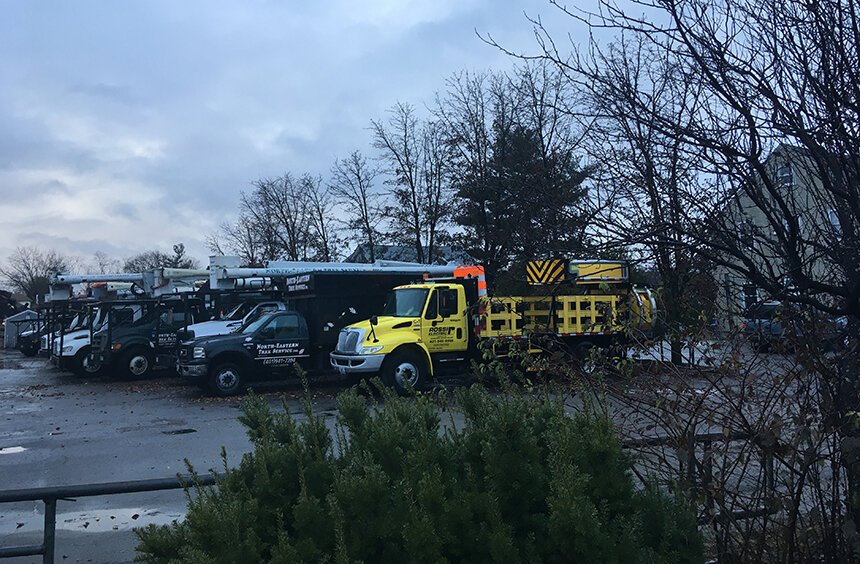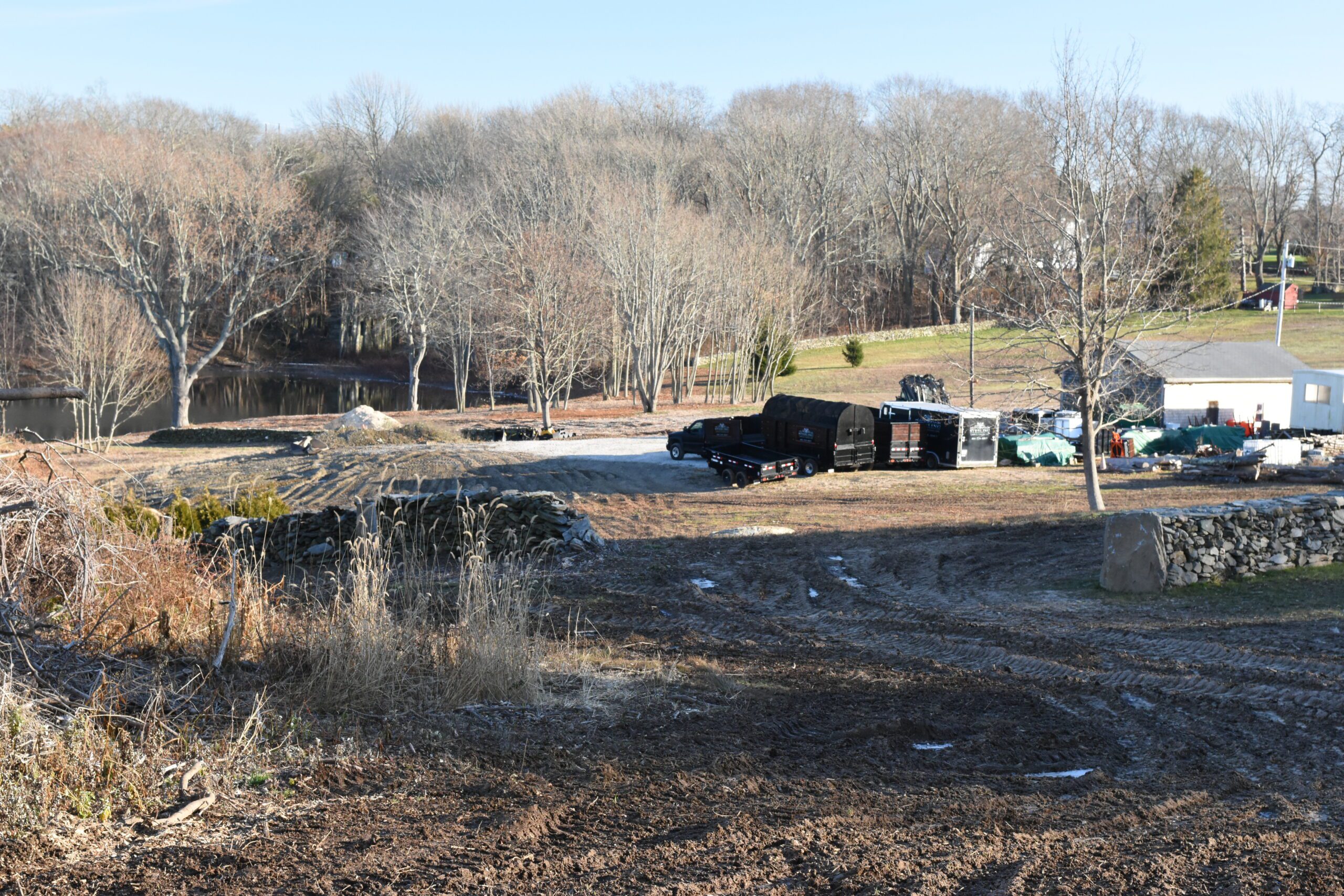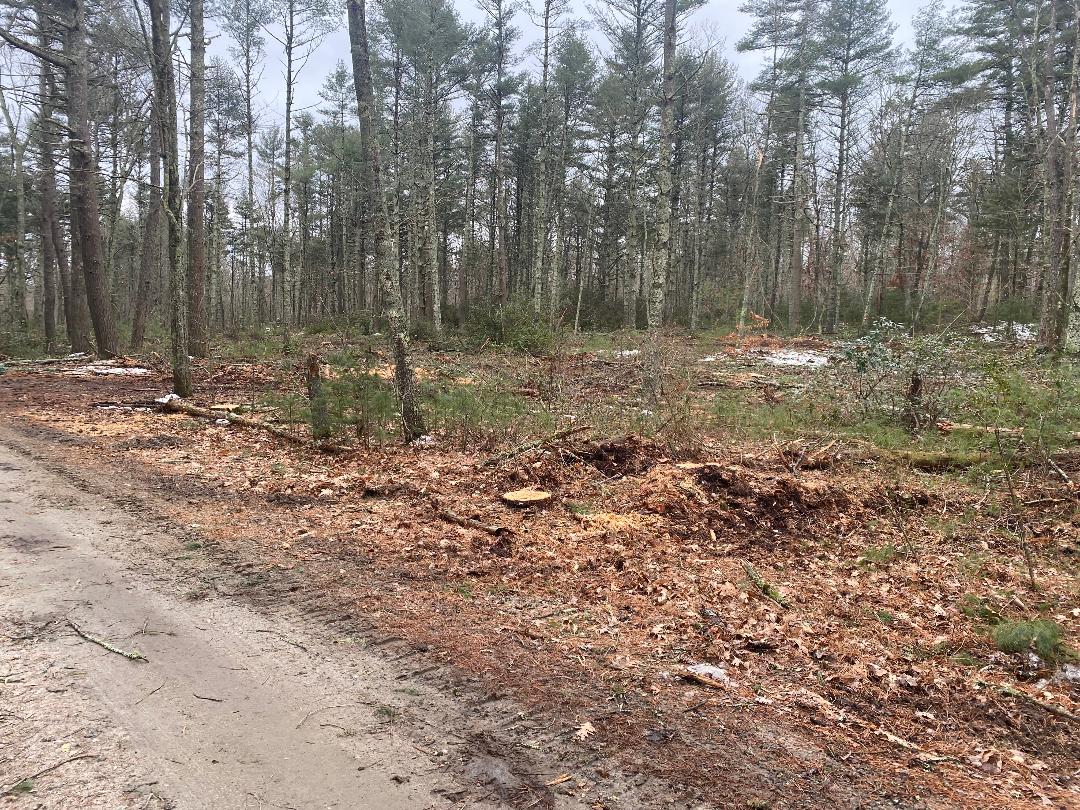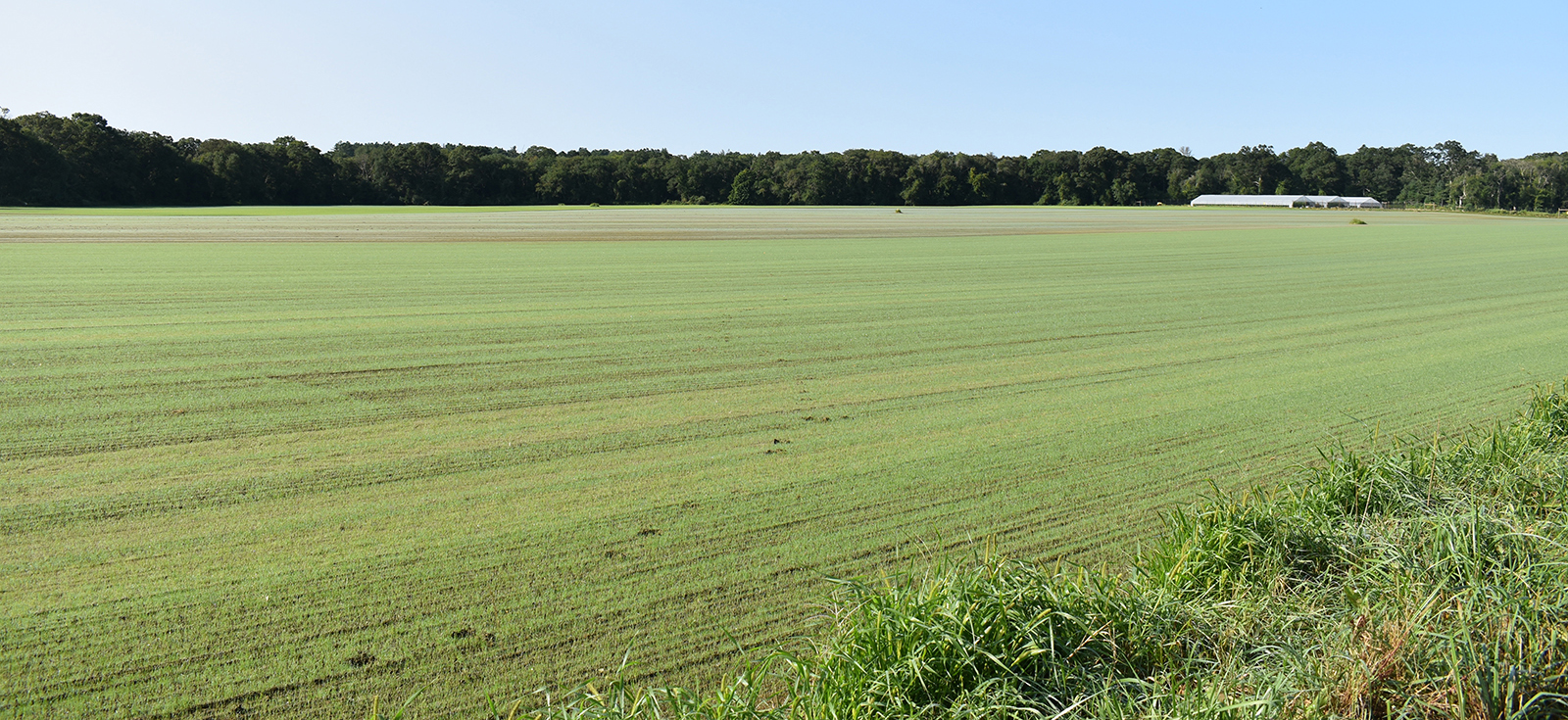Cranston Tree Company Uses Manufacturing Loophole and State Law It Pushed to Make Life Miserable for Neighbors
October 23, 2020
CRANSTON, R.I. — It’s been raining mulch near 1000 Pontiac Ave. for years, and the neighbors have had enough.
“It’s very loud, very noisy, it smells, it creates very fine wood dust that’s like snow,” neighbor James Walsh said. “It’s hazardous to your health and breathing.”
Another neighbor, Rob Grazewicz, showed up at a February Cranston Public Works Committee meeting with a bucket full of wood he had picked up from his yard.
Neighborhood residents adjacent to 1000 Pontiac Ave. have been voicing complaints about the source of this debris, North-Eastern Tree Service Inc., long before the pandemic threw their efforts for a loop. But so far, their concerns have largely been ignored.
“The city’s failed to enforce the law,” City Council member Steve Stycos said. “We have zoning to protect people, and this is a situation where someone is clearly running a large business in a residential zone.”
The area that houses North-Eastern Tree Service sits on parcels that predate residential zoning and that were originally the site of a light manufacturing operation. This means that the properties qualify under the legalese of preexisting, non-conforming zoning, and that it can continue to be used in a manufacturing capacity.
At first, this proved to be a wrench in the cogs for North-Eastern Tree Service owner Michael Sepe — no relation to the former Cranston mayoral candidate — when he bought the original three properties in 2001 and petitioned to use them for a tree service company.
“He petitioned for a zoning certificate to run a tree service and, at first, the building official denied the request,” Stycos said. “But then, somehow, even though he was denied, it was later approved with the statement that, well, its basically the same thing, a tree service and a manufacturing plant.”
Merriam Webster defines the verb “manufacture” as “the process of making wares by hand or by machinery, especially when carried on systematically with division of labor.”
Whether a tree service company — whose services include tree pruning, tree removal, stump grinding, tree moving/planting, and tree maintenance — is considered to be a manufacturer is up for debate. But another part of the reason the city eventually approved the business is that it claimed it fit under the state’s right-to-farm law.
“The city stated that it approved the request because North-Eastern Tree was an agriculture operation under the Rhode Island Agriculture and Forestry Right to Farm Act,” Walsh said. “There are several problems with this decision. … North Eastern Tree business is pruning and cutting down trees … then grinds them into wood mulch, this is not an agricultural operation.”

Nonetheless, in 2005 Sepe’s request was granted, and North-Eastern Tree Service settled into its new home. Sepe began to buy up other properties zoned residential in the immediate area, leasing many of them out for rent but also using portions of the backyards for his tree operation. These properties are still zoned residential. Sepe’s total holdings encompass 14 lots.
Over the years, Sepe’s tree service company started grinding up trees on the property. As mulch and dust blew into residents’ yards and windows, their frustration grew. But when they voiced their concerns to the City Council, they learned that a law created in 2013 protected arborists and mulching operations from their very complaints.
They also learned that North-Eastern Tree Service was one of the businesses pushing for this protection.
The 7-year-old law states that, “No arboriculture operation or mulching operation, as defined in this chapter, may be found to be a public or private nuisance due to the alleged objectionable … noise from equipment used in normal, generally accepted arboriculture or mulching operations … dust created from normal, generally accepted arboriculture or mulching operations … use of pesticides, rodenticides, insecticides, herbicides, or fungicides.”
The law has tied the neighbors’ hands.
“Things are at a standstill,” Walsh said.
In the meantime, logs keep piling up on the property, and while North-Eastern Tree Service hasn’t been grinding them recently, the neighbors are concerned that one day soon more mulch will rain down.
“I can’t prove health impacts, but I certainly think there are health impacts,” Stycos said. “Plus, the value of them being able to enjoy their home and have their windows open and use their pool without having to clean it every day.”
North-Eastern Tree Service didn’t respond to requests for comment.




what group of fool legislators passed this law. it violates most zoning ordinances for noise and ignores any health and or environmental impacts on the surrounding properties. pre-existing non conforming aside there has to be a buffering requirement in the zoning ordinance between contiguous residential and industrial properties which is usually very large.
by the way in order for a "farm" to sell product, the product is supposed to be grown on the property not brought in from off site.
an additional note – ground up wood is not supposed to be used for mulch. ground up bark is. the wood is cellulose and is chemically hydrogen, oxygen and carbon. it contains no nitrogen. when microbes break down the wood they require nitrogen for cellular growth. since there is none in the wood chips they extract it from the soil. any landscaping planted in the mulched beds also need nitrogen to grow so the microbes are starving the plants of food. the solution for which is to heavily fertilize the landscape beds to compensate for the nitrogen uptake by the wood consuming microbes. but not many people know that so the plants suffer.
The mound of whatever is visible from the road & about 15 ft high. It’s a potential fire hazard, and I think the city and state should act in timely manner to get rid of it completely.